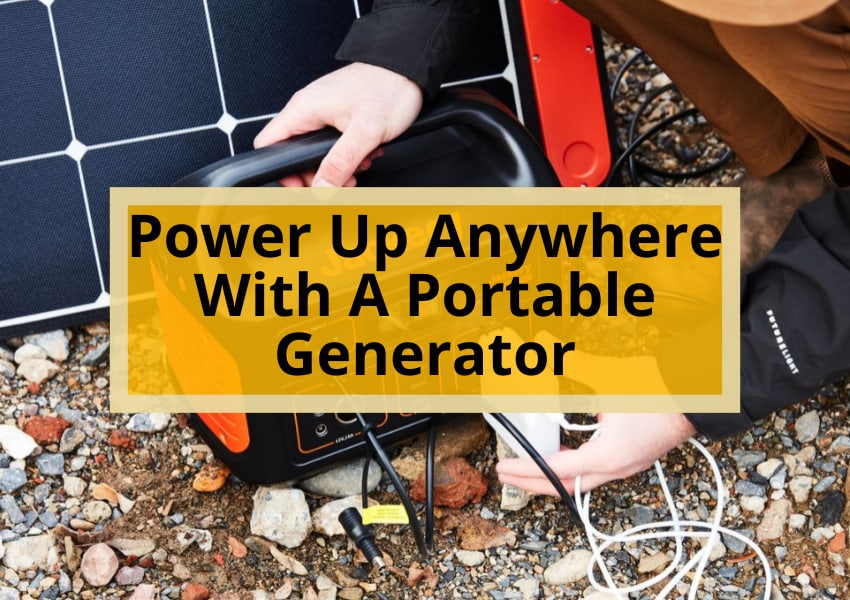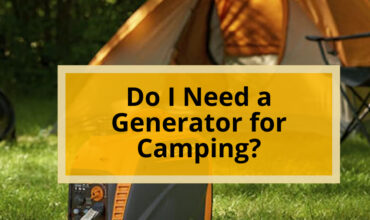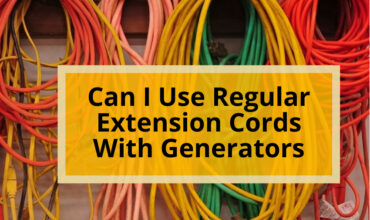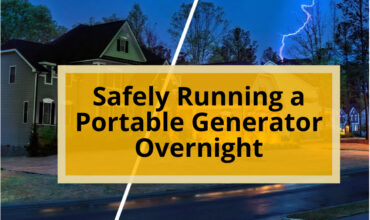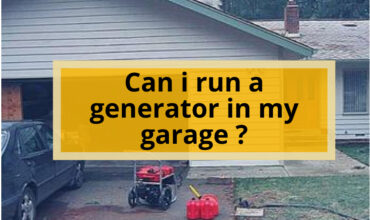Do you ever find yourself in the middle of a power outage, unable to use your electronics or appliances? Are you planning a camping trip or outdoor event and need a reliable source of power? Look no further than a portable generator.
Portable generators are versatile and convenient sources of power that can be used for a variety of applications, from home backup to recreational activities to professional use.
There are many types of portable generators available, each with their own unique features and capabilities. Whether you need a generator for occasional use or to power your entire home, there is a model that can meet your needs.
In this article, we will explore the different types of portable generators, how to size one correctly, and provide links to related articles to help you choose the best generator for your specific needs.
So, whether you need a source of power for emergencies or outdoor activities, read on to learn how to power up anywhere with a portable generator.

Types of Portable Generators
While portable generators come in four different types – solar, recreational, emergency, and professional – some may argue that certain types are unnecessary for their individual needs. However, it is important to consider the specific power needs and intended usage to determine the most practical and effective type for the situation.
One key decision to make is whether to opt for a solar-powered generator or a gasoline-powered one. Solar generators offer the advantage of being eco-friendly and quiet, making them ideal for camping or outdoor activities. However, they may not provide as much power as a gasoline-powered generator and may take longer to charge.
Recreational inverter generators are a popular choice for outdoor enthusiasts because they are lightweight, relatively quiet, and provide clean power for sensitive electronics. Meanwhile, emergency generators are designed to run for hours without interruption and feature larger gas tanks, making them ideal for powering mission-critical appliances during a power outage.
Ultimately, the choice of portable generator type will depend on individual power needs and intended usage.
also read : Power Up Anywhere: Guide To Buying Inverter
Sizing and Wattage
Determining the wattage of each appliance to be powered simultaneously is crucial in properly sizing a generator for one’s needs. To do this, one must first identify the starting wattage and running wattage of each appliance. Starting wattage is the power required to start an appliance, while running wattage is the power required to keep it running. Typically, appliances with motors require more starting wattage than running wattage.
Once the starting and running wattage of each appliance is identified, one can add up the wattage of all appliances that will be used simultaneously to determine the maximum load that the generator must be able to handle.
Choosing the right generator also requires consideration of other factors, such as fuel type, portability, and noise level. Fuel type options include gasoline, propane, diesel, and natural gas, with gasoline being the most common. Portability factors include weight and size, with lighter and smaller generators being more portable.
Noise level is measured in decibels (dB) and can range from 50 dB for inverter generators to 80 dB or more for conventional generators. In general, inverter generators are more fuel-efficient, quieter, and produce cleaner power, making them suitable for sensitive electronics. Ultimately, selecting the right generator requires careful consideration of power needs, fuel type, portability, and noise level.
Related Articles and Resources
Exploring related articles and resources can provide valuable insights and guidance for individuals seeking to make informed decisions when selecting a backup energy source. Whether you are in the market for an emergency generator, a portable semi-professional generator, or the best portable generators of 2023, there are a wealth of resources available to help you navigate the crowded marketplace of backup energy solutions. Here are five resources to consider:
- Emergency Generator Buyers Guide: This article provides a comprehensive overview of the various types of emergency generators available, as well as tips for choosing the right generator for your needs. It also includes a comparison chart of the top-rated brands in the industry.
- Portable Semi-Professional Generator Buyers Guide: This guide focuses on the needs of homeowners and contractors who require a high-quality portable generator for frequent use. It includes a comparison chart of the top-rated brands in the industry, as well as detailed specifications and performance metrics.
- Best Portable Generators of 2023: This article provides a detailed review of the top portable generators on the market, including pros and cons, features, and pricing information. It also includes a comparison chart of the top-rated brands in the industry.
- Standby Generator Buying Guide: This guide is designed for individuals who are interested in purchasing a standby generator, which is a more permanent backup energy solution for the home. It includes a comparison chart of the top-rated brands in the industry, as well as tips for choosing the right generator for your needs.
- Free generator wattage calculator: This online tool allows you to calculate the wattage of every appliance you plan to power at one time, as well as the maximum load your generator will need to handle. This can help you determine the right size of generator for your needs.
By taking advantage of these resources, you can make an informed decision when choosing a backup energy source that meets your specific needs and budget.
Frequently Asked Questions
What is the average lifespan of a portable generator?
The average lifespan of a portable generator depends on its usage and maintenance. Common issues include carburetor clogs, low oil shut-off failures, and worn-out spark plugs. Regular generator maintenance can extend its lifespan and ensure optimal performance.
Can portable generators be used indoors in any capacity?
Portable generators can be used indoors, but it is important to prioritize indoor safety and manage noise levels. It is recommended to use solar or battery-powered generators, as they produce no emissions and are safe for use in enclosed spaces. It is also important to ensure proper ventilation and to never operate a generator in a closed space. Noise levels can be managed by choosing a generator with a low decibel rating, using sound barriers, and placing the generator as far away from living spaces as possible.
Are there any safety precautions that need to be taken when using a portable generator?
When using a portable generator, safety measures must be taken to prevent carbon monoxide poisoning, electric shock, and fire. Precautions include placing the generator outdoors, away from windows and doors, using grounded extension cords, and never refueling while the generator is running.
Can portable generators be used to power an entire home during a blackout?
While portable generators can provide power during a blackout, they may not be able to power an entire home. Pros and cons should be considered, and alternative options such as standby generators may be more practical. Proper sizing is crucial for functionality.
Is it necessary to perform regular maintenance on a portable generator?
Regular maintenance on portable generators is necessary to ensure reliable performance. Fuel types affect maintenance schedules, with gasoline generators requiring more frequent maintenance. Consult the manual for specific maintenance requirements, including oil changes, filter replacements, and spark plug inspections.
